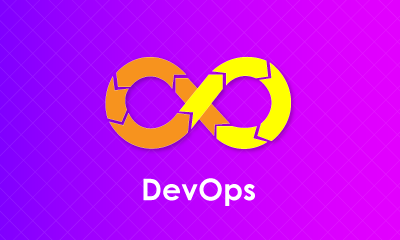- Home
- Blog
- Microsoft Azure
- Azure DevOps vs GitHub
Azure DevOps vs GitHub
Are you confused about which one to choose - Azure DevOps or GitHub? No more wait! You have landed at the right place. The article will briefly explain the concept of both Azure DevOps and GitHub. It will also guide you on the various parameters that help you know their differences. At the end of the article, you will have in-depth knowledge and select one that better aligns with the business goals.
Table of Contents
Selecting the relevant collaboration platform can substantially impact your team's development process. Azure DevOps and GitHub are both prominent leaders in the market. The platforms offer similar features and tools; understanding their fine differences will help you make an informed decision.
What is Azure DevOps?
Azure DevOps is a robust tool developed by Microsoft. It is a platform that offers many tools for software development and deployment. It provides many features, such as release management, version control, and team collaboration. It also provides tools for testing, project, and package management. The great thing about Azure DevOps is that it comes with excellent integration capabilities.
Azure DevOps assists users in automating and orchestrating application management tasks. Azure DevOps provides an all-in-one solution for managing software projects from planning to development, testing, and deployment. Some known tools within Azure DevOps include Azure Boards, Azure Artifacts, and Azure Pipelines. Professionals in the field widely use them.
| If you want to enrich your career and become a professional in Azure DevOps, then enroll in "Azure DevOps Training". This course will help you to achieve excellence in this domain. |
What is GitHub?
GitHub is a software platform used by developers to store, monitor, and engage in collaborative efforts for software projects. It uses the GIT, which is open-source, to allow many people to modify web pages simultaneously. Collaborating with teams in real-time is one of the primary features of GitHub. Developers can manage and store the code with the help of GitHub. It also helps in tracking and controlling modifications to the code.
Visit here to learn GitHub Certification Training
Azure DevOps vs GitHub: Key Differences
1. Open-source vs Closed Source Management
GitHub: It is mostly preferred by its large community and offers both private and public repositories. You can host Node.js and Bootstrap on GitHub. No doubt, GitHub is an excellent go-to product for open-source projects and communities. It also provides users with paid private repositories apart from free public projects.
Azure DevOps: It is mainly preferred by corporations and provides users with both private and public repositories. Most companies use Azure DevOps as part of their sanctioned product suite.
Key Takeaway: Most of the open-source projects are generally hosted on GitHub.
2. Continuous Integration and Deployment CI/CD
GitHub: "Action" is the new feature of GitHub that can automate, customize, and execute the software development workflows in the repository. It also includes starting a CI process. Much of GitHub's functionality is built on a platform such as Azure DevOps.
Azure DevOps: It has a dedicated section for CI (continuous integration). Pipeline is a mature feature that can handle both Azure DevOps CI and CD.
Key Takeaway: Azure DevOps has full integration capabilities with repositories of GitHub, while Action will have more improvements in the future.
3. Project Management
GitHub: GitHub projects is a part of GitHub that provides project management services for code projects that are already in GitHub.
Azure DevOps: Azure Boards, a part of Azure DevOps, is used for project management. It has approximately 1000 extensions to integrate with other systems. The user can create automatic documentation, receive alerts on Slack, and integrate with AWS services.
Key Takeaway: Azure DevOps is the preferred tool by most engineers for semi-serious projects and more.
4. Code Repository
GitHub: Most of the open-source projects are hosted on GitHub. Code management is the foundation of GitHub, serving as its essence and core. It includes all the essential elements, such as pull requests, branching, and code reviews.
Azure DevOps: It also has a good code repository. It has all the functionality and features required to execute any project.
Key Takeaway: GitHub is the best option to host code repositories.
5. On-Premises
GitHub: GitHub.com offers all the features to the users via GitHub Enterprise.
Azure DevOps: The Azure server is delivered across 3872 floppy disks, ensuring installation pleasure.
Key Takeaway: Azure is the preferred choice for most of the engineers across the world.
6. Reputation
GitHub: It serves as the default platform for numerous DevOps tasks, especially tasks that deal with code management. Many companies in the world have development stacks to make use of GitHub.
Azure DevOps: It came from TFS, a Microsoft product that doesn't have a good reputation in the market. Irrespective of many rebranding exercises, the memory still haunts the image.
Key Takeaway: Thus, GitHub has a better reputation than DevOps.
7. Pricing
GitHub: The developer can host open-source and Public projects free of cost. But, the team plan is $4 per user /month, and the enterprise plan is $21 per user/month.
Azure DevOps: The basic plan costs $6 per user/ per month, while the test plan costs an extra $52 per user/month.
Key Takeaway: The choice between the two depends on the project and budget.
[ Check out Azure DevOps Interview Questions and Answers ]
GitHub vs Azure DevOps FAQs
1. Which is better - Azure DevOps or GitHub?
Enterprises prefer Azure DevOps over GitHub as it can be used for planning and collaboration on developing code to build and deploy applications.
2. Which is cheaper - GitHub or Azure DevOps?
Azure DevOps is a free tool. However, it allows up to five users for small and open-source projects. On the other side, you can use OpenStack for all types of open-source projects for free.
3. Will GitHub replace Azure DevOps?
GitHub has a massive community that allows people to work on multiple projects. So the chances are less for replacing GitHub with Azure DevOps. In the future, there will be chances that the two tools can be merged together.
4. What is the maximum number of repositories in Azure DevOps?
Azure DevOps has no limit on the number of pipeline definitions and repositories.
5. When to use Azure DevOps?
The tool mainly takes the software application from the ideation stage to deployment.
[ Learn GitHub Interview Questions and Answers ]
Conclusion
GitHub is a robust platform where you can build and collaborate on open-source projects. You must go to paid versions if you need to go private with code repositories.
Microsoft is an ideal choice for applications hosted by Azure. It offers highly competitive pricing with tools for lifecycle management. Therefore, both have reasonable prices and come with a plethora of integrations. The choice will depend on the project you are creating, the required features, and the type of systems you need for automation.
If you are eager to learn more about Azure DevOps and GitHub, you can sign up for courses in MindMajix. It will help you to understand the tools in-depth and make the correct decision.
 On-Job Support Service
On-Job Support Service
Online Work Support for your on-job roles.

Our work-support plans provide precise options as per your project tasks. Whether you are a newbie or an experienced professional seeking assistance in completing project tasks, we are here with the following plans to meet your custom needs:
- Pay Per Hour
- Pay Per Week
- Monthly
| Name | Dates | |
|---|---|---|
| Azure DevOps Training | Apr 19 to May 04 | View Details |
| Azure DevOps Training | Apr 22 to May 07 | View Details |
| Azure DevOps Training | Apr 26 to May 11 | View Details |
| Azure DevOps Training | Apr 29 to May 14 | View Details |

Viswanath is a passionate content writer of Mindmajix. He has expertise in Trending Domains like Data Science, Artificial Intelligence, Machine Learning, Blockchain, etc. His articles help the learners to get insights about the Domain. You can reach him on Linkedin
- Azure Active Directory
- Azure Active Directory B2C
- Azure Active Directory Domain Services
- Azure Analysis Services
- Azure App Services
- What is Azure Application Insights?
- Azure Arc
- Azure Automation - Benefits and Special Features
- A Complete Guide On Microsoft Azure Batch
- Azure Cognitive Services
- Azure Data Catalog
- Azure Data Factory - Data Processing Services
- Microsoft Azure Data Factory Tutorial (2024)
- Everything You Need To Know About Azure Data Lake
- Azure DNS - Azure Domain Name System
- Azure ExpressRoute
- Azure Functions - Serverless Compute
- Azure Interview Questions and Answers (2024)
- Azure IoT Edge Overview
- Azure IoT Hub
- What Is Azure Key Vault??
- Azure Load Balancer
- Azure Logic Apps - The Lego Bricks to Serverless Architecture
- Azure Machine Learning
- Microsoft Azure Media Services
- Azure Monitor
- Introduction To Azure SaaS
- Azure Security Center
- Azure Service Bus
- Overview of Azure Service Fabric
- Azure Site Recovery
- Azure SQL Data Warehouse
- Azure Stack - Cloud Services
- Azure Stream Analytics
- Azure Virtual Machine
- Azure’s Public Cloud
- Microsoft Azure Application Gateway
- Microsoft Azure Certification Path
- Microsoft Azure - Exactly What You Are Looking For!
- Microsoft Azure Fabric Interview Questions
- HDInsight Of Azure
- IS Microsoft Azure Help To Grow?
- Microsoft Azure Portal
- Microsoft Azure Traffic Manager
- Microsoft Azure Tutorial
- Overview of Azure Logic Apps
- Top 10 Reasons Why You Should Learn Azure And Get Certified
- Server-Less Architecture In Azure
- What is Microsoft Azure
- Why Azure Machine Learning?
- Azure DevOps Interview Questions
- Azure Active Directory Interview Questions
- Azure DevOps vs Jira
- What is Azure Service Fabric
- What is Azure Databricks?
- Azure Databricks Interview Questions
- Azure Data Factory Interview Questions
- Azure Architect Interview Questions
- Azure Administrator Interview Questions
- Azure Data Studio vs SSMS
- Microsoft Interview Questions
- What is Azure Data Studio - How to Install Azure Data Studio?
- Azure DevOps Projects and Use Cases
- Azure Data Factory (ADF) Integration Runtime
- Azure DevOps Delivery Plans
- Azure DevOps Variables
- Azure DevOps Pipeline















